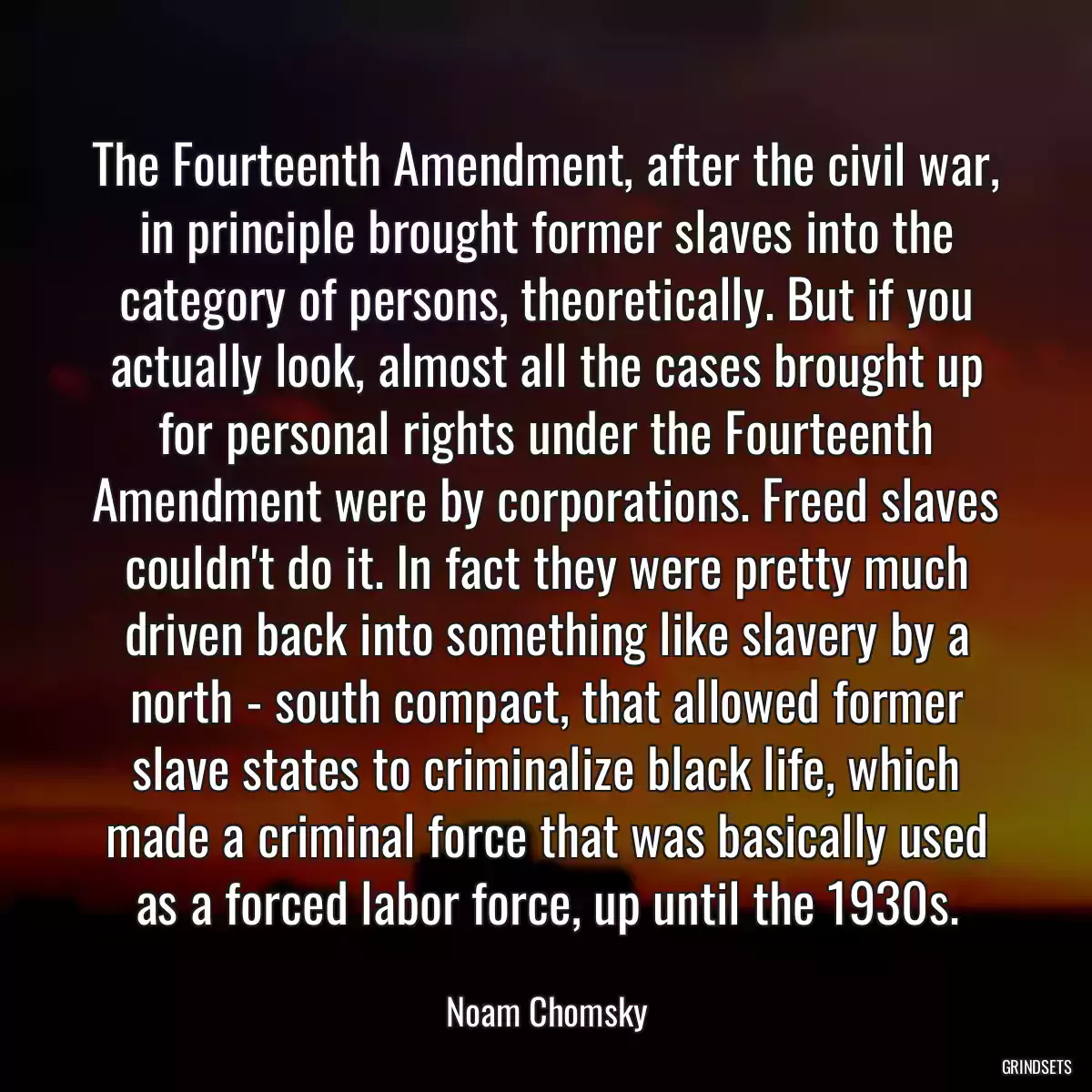
The Fourteenth Amendment, after the civil war, in principle brought former slaves into the category of persons, theoretically. But if you actually look, almost all the cases brought up for personal rights under the Fourteenth Amendment were by corporations. Freed slaves couldn't do it. In fact they were pretty much driven back into something like slavery by a north - south compact, that allowed former slave states to criminalize black life, which made a criminal force that was basically used as a forced labor force, up until the 1930s.